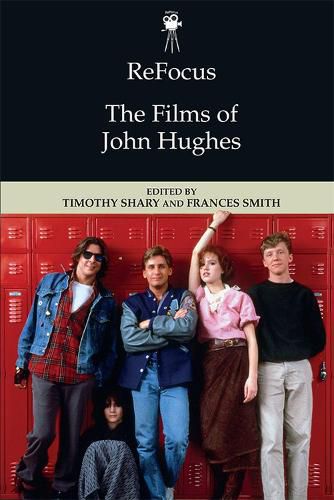Readings Newsletter
Become a Readings Member to make your shopping experience even easier.
Sign in or sign up for free!
You’re not far away from qualifying for FREE standard shipping within Australia
You’ve qualified for FREE standard shipping within Australia
The cart is loading…






The films of John Hughes (1950-2009) have enjoyed popular and critical success alike, from his first scripts in the early 1980s through to his celebrated work later in the decade and into the 1990s. While Hughes is best remembered for his stories about teenagers, such as Sixteen Candles (1984), The Breakfast Club (1985) and Ferris Bueller’s Day Off (1986), almost all of his films deal with comical conflicts within everyday American families. He directed eight films and wrote over thirty in a career spanning a quarter of a century, and is fondly remembered for influencing American perceptions of - and appreciation for - the daily lives of (primarily) common citizens.
This wide-ranging collection examines the films of John Hughes from diverse angles, considering how he depicted young characters, how he revealed the humour of family life, and how his films subtly critiqued social issues such as class, race, gender, education and domestic relationships.
$9.00 standard shipping within Australia
FREE standard shipping within Australia for orders over $100.00
Express & International shipping calculated at checkout
The films of John Hughes (1950-2009) have enjoyed popular and critical success alike, from his first scripts in the early 1980s through to his celebrated work later in the decade and into the 1990s. While Hughes is best remembered for his stories about teenagers, such as Sixteen Candles (1984), The Breakfast Club (1985) and Ferris Bueller’s Day Off (1986), almost all of his films deal with comical conflicts within everyday American families. He directed eight films and wrote over thirty in a career spanning a quarter of a century, and is fondly remembered for influencing American perceptions of - and appreciation for - the daily lives of (primarily) common citizens.
This wide-ranging collection examines the films of John Hughes from diverse angles, considering how he depicted young characters, how he revealed the humour of family life, and how his films subtly critiqued social issues such as class, race, gender, education and domestic relationships.